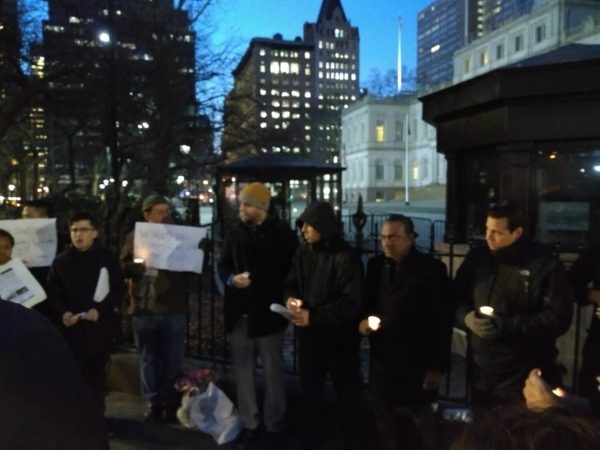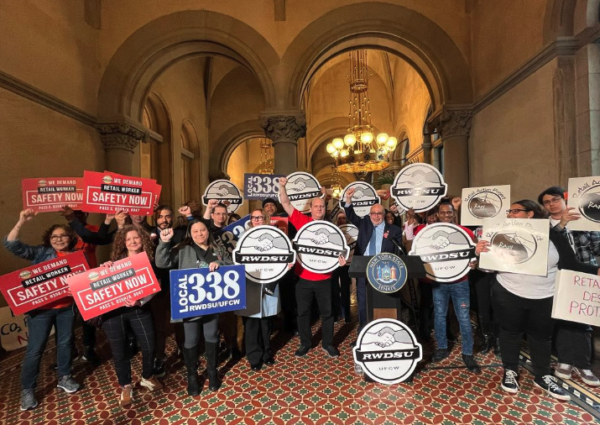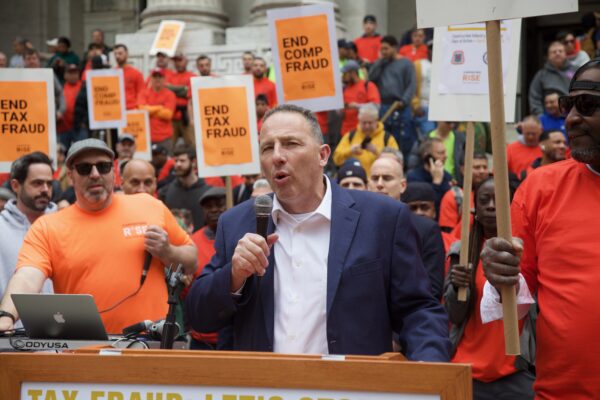The suicide of longtime black-car driver Doug Schifter on Feb. 5 spotlighted just how badly off many people are in today’s economy.

Schifter, 61, a former columnist for the Black Car News newsletter who said he’d driven almost 5 million miles during his more than 40 years in the industry, posted a 1,700-word suicide-note manifesto on Facebook at 5:33 that morning.
“I have been financially ruined because three politicians destroyed my industry and livelihood and Corporate NY stole my services at rates far below fair levels. I worked 100-120 consecutive hours almost every week for the past fourteen-plus years. When the industry started in 1981, I averaged 40-50 hours. I cannot survive any longer with working 120 hours!” he wrote. “I will not be a slave working for chump change. I would rather be dead.”
Then he drove a rented car to Manhattan, parked on the east side of City Hall near the Brooklyn Bridge entrance, and, shortly after 7 a.m., shot himself. He was the third for-hire vehicle driver to commit suicide in the last three months.
“This isn’t the first person who has lost their life because of this industry, and we’re pleading with the Taxi and Limousine Commission, Mayor de Blasio, Governor Cuomo, and state elected officials to help us make it the last,” the Independent Drivers Guild said in a statement.
The old law limiting the number of taxis in the city, Schifter wrote, worked because “it limited competition so in bad times everyone still made a good living.” Now, he said, the streets are flooded with “unlimited cars, and some 3,000 new ones every month still coming. There is not enough work for everybody that pays a living.”
Sixty years ago, driving a cab could support a working-class family in Brooklyn or the Bronx. Forty years ago, it could support a single person. Today, drivers have to work ludicrous amounts of overtime to avoid making less than minimum wage after expenses.
Taxi drivers aren’t alone in the 21st-century U.S. economy. The restructuring of work has turned many once-livable jobs into neo-sweatshops, from once-unionized airline cabin cleaners working for subcontractors for minimum wage to adjunct college professors, who after 20 years of schooling can net less than $15 an hour and often don’t know if they’ll have a job next September. Older workers have a near-impossible time making their way back to where they were if they get laid off or their occupations become obsolete. Younger workers are struggling to cover astronomical rents with precarious gig-economy incomes.
America’s political classes often seem utterly ignorant of this, and have few valid ideas to help. Tech billionaires celebrate their “disrupting,” dismissing the people whose livelihoods are wrecked as outdated collateral damage. Centrist Democrats advocate more job training and professional education; when I met Mayor Bill de Blasio during his 2013 campaign, I was appalled that he brushed off my suggestion of a revived Works Progress Administration as impossibly idealistic. The New Deal program gave millions of people jobs in the depths of the Depression and built Brooklyn College and Jones Beach. A handful of “compassionate conservatives” promote schemes like encouraging people to move to places with lower unemployment.
Sen. Bernie Sanders made people’s frustration with this situation the heart of his 2016 presidential campaign. But Donald Trump exploited it while blaming immigrants for it, using the government to undermine workers’ rights even more, and, like many on the far right, sneering at those who aren’t rich as “losers.”
“I have no more health insurance and am not enjoying good health,” Schifter wrote. “No more vehicle as my GM engine failed twice this year as well as the transmission. No more income to pay bills and maxed-out credit cards I cannot pay. I will lose my house and everything else. I see no point to continue trying.”
Douglas Schifter was likely severely depressed and emotionally disturbed. People who are mentally healthy generally don’t kill themselves. But people are much more likely to be depressed when they are battered by a brutal reality. Much of the opioid epidemic afflicting the nation is a disease of hopelessness. Schifter’s writings show a man in agony, feeling crushed by a society and economic system increasingly devoid of compassion and solidarity.
“I am proud to say I never paid a penny to a dispatcher nor took a penny from a driver in my life as a dispatcher. The idea is repulsive to me,” he wrote in his last Black Car News column, in October, referring to the system where drivers have to tip dispatchers if they want get a car that day.
His last online post before his suicide note, at 4:08 a.m. on Feb. 5, was a plea for Middle East peace. “Since both Jews and Muslims worship the same G-d they should both seek peace in His Honor,” he wrote.



